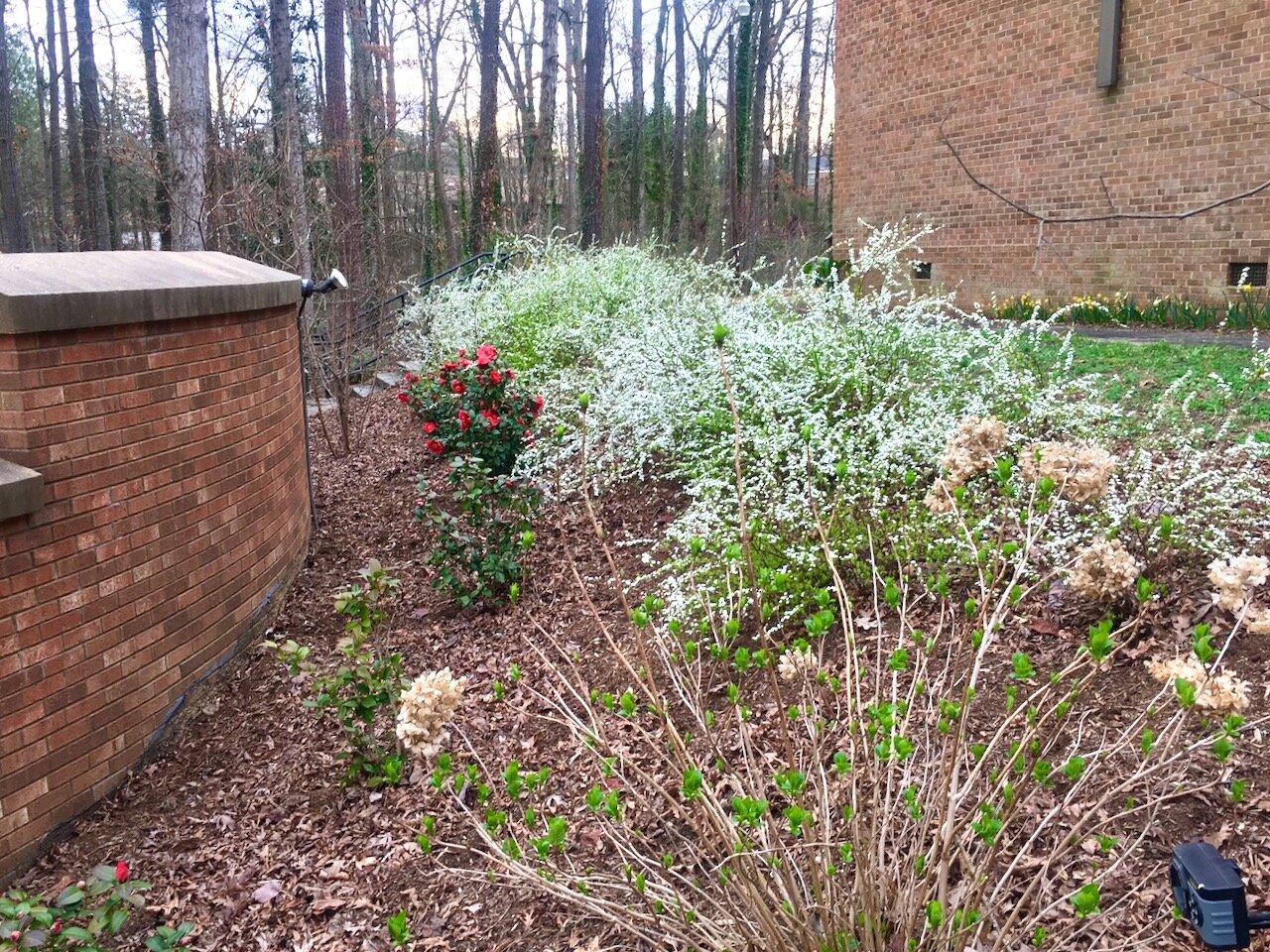Letter from Lindy March 21
Pilgrims,
I snuck out of Durham Sunday after worship for the second time in a year. Only the second time in 12 months. I had to let that sink in. I wish it had been for respite or fun, but alas, I returned to the same place I had gone in September--Flat Rock, NC with the same person, my sister. Whereas our time there in the fall was to lay her son’s ashes to rest alongside my father’s, this return visit was to spend time in that very memorial garden on St. John’s of the Wilderness’s campus to honor, cry, share stories as our family continues its journey with and through our grieving. I had not anticipated this trip, but when Leslie shared her intent during her weekend in Durham to be with my mom, I decided to go with her to lend my shoulder. I’m glad I did because I found I needed that sacred pause too.
We spent much of our time sharing stories--memories about Kyle, our parents, our siblings, our history, and everything in between. It felt good to laugh and cry with someone who has been a part of my entire life. We found ourselves checking in about the stories that define our respective narratives. Some were the same, some not. There were a few we each held that the other had no recollection of, even though we both lived through whatever event it was. We each remarked that when we traverse the landscape of our childhood, neither of us have a continuous memory, like a never-ending movie. Rather our collective stories are episodic, prompting me to ponder why our respective memory closets held the stories they did.
Coincidentally, but not surprisingly, our experience reinforces the premise of the two articles (here and here) we read for our Lenten journey: Race and Our Stories this week. I’d love your thoughts on them from your own experience. The first article explores how communal memories are built up from individual ones as studied through the stories children carry, shaped in large part by the ones their parents tell. The second argues the importance of why children need to know their family history.
Ultimately, one reason it feels important to name and claim our stories, specifically as white people, and as a predominantly white congregation, is that when we become disconnected from the narratives of where we came from, argue many ant-racism trainers, we are in danger of believing our stories are normative, to which others must assimilate. “We all feel stronger if we are part of a tapestry,” says Stefan Walters, a family therapist. “One thread alone is weak, but, woven into something larger, surrounded by other threads, it is more difficult to unravel." Isn’t that the very work of dismantling the systems and structures of white supremacy that have silenced so many people of color stories? Celebrating and lamenting our stories, and doing the same with the stories of our siblings, I believe we will become a part of God’s hope for every and all people in God’s beloved community.
Shalom,
Pastor Lindy

